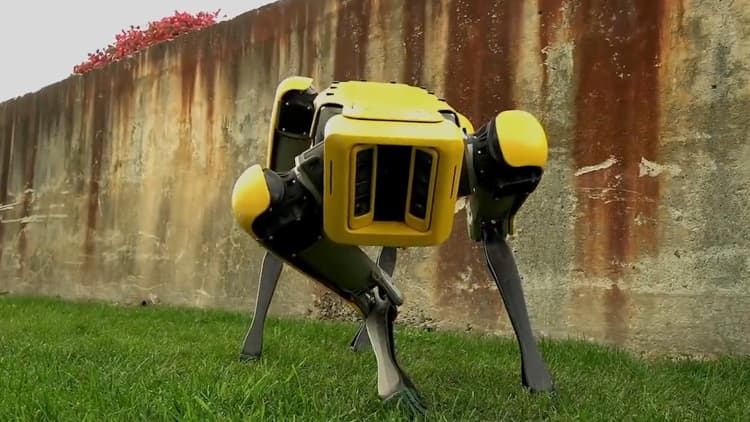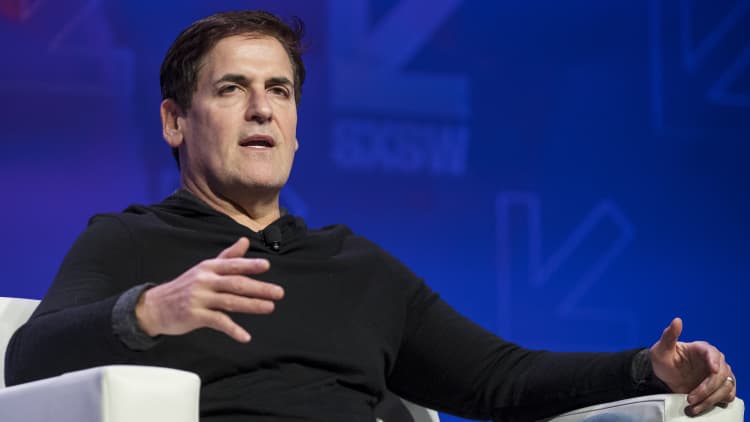If you saw the video of Boston Dynamics' robot dog opening up a door for its fellow robot dog this week and were summarily frightened into believing the end is nigh, you are not alone.
But also this week, billionaire Microsoft co-founder Bill Gates gave reason to press pause on any apocalypse scenarios.
"AI can be our friend," says Gates, speaking with "Hamilton" composer Lin-Manuel Miranda and his wife, Melinda, at Hunter College in New York City on Tuesday.

In response to the question, "What do you think will happen to human civilization with further development in AI technology?" Gates says the rise in artificial intelligence will mean society will be able to do more with less.
"AI is just the latest in technologies that allow us to produce a lot more goods and services with less labor. And overwhelmingly, over the last several hundred years, that has been great for society," explains Gates.
He points to developments in agriculture to illustrate.
"We used to all have to go out and farm. We barely got enough food, when the weather was bad people would starve. Now through better seeds, fertilizer, lots of things, most people are not farmers. And so AI will bring us immense new productivity," says Gates.
Of course, the advancements and elimination of millions of farmers weren't all positive. As then-President Barack Obama put it in 2014, "There are a lot of big producers who are doing really well, but there are even more small farms, family farms, where folks are just scratching out a living and increasingly vulnerable to difficulties in financing and all the inputs involved... and it's very hard for young farmers to get started." He signed a $956 billion farm bill to help the sector.
Still, according to Gates, with increased productivity in some areas, displaced workers could fill gaps that currently exist elsewhere in the labor market — like elder care, teaching and support for special needs children, says Gates.
"This extra productivity is a very very good thing used in an enlightened way," says Gates.
It will also mean that we will all be able to work fewer hours, says the billionaire.

"Someday we will even get to the point where we can say, 'Hey, people don't have to work super long hours they can have periods of their life they don't work as much,'" says Gates.
It will be hard for the labor market to move as quickly as AI develops, though, says Gates. And that will create a challenge for society — it will have to figure out how to retrain workers and distribute benefits in a new economy. "That's a very key thing," says Gates.
Gates' largely optimistic view of the potential for artificial intelligence is diametrically opposed to the warnings about AI from another tech billionaire: Elon Musk.
The SpaceX and Tesla chief has carved out a niche for himself as the doomsday soothsayer when it comes to the future of artificial intelligence.
According to Musk, AI poses "vastly more risk than North Korea" and that it is a "fundamental risk to the existence of human civilization."
See also:
Billionaire Bill Gates on the impact of A.I.: 'Certainly' we can look forward to longer vacations
9 of the most jaw-dropping things Elon Musk said about robots and AI in 2017

Like this story? Like CNBC Make It on Facebook.


